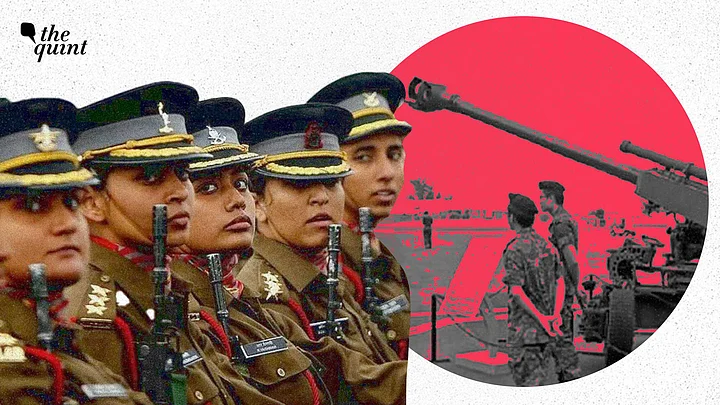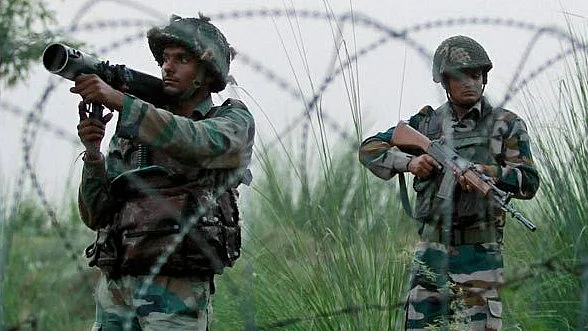Should professional Military soldiers in democracies be used for non-professional tasks like publicising governmental and societal policies? Is there a risk of impropriety or inefficaciousness to soldierly bearings and existence by their undertaking of civilian-societal tasks? Is it even fair?
Questions have been triggered with the recent news of the Army Head Quarters proposing that Military soldiers who go on leave to their homes, pursue 'social service’ via disseminating information about various governmental schemes and policies to the citizenry.
Are we reading too much into tea leaves or does it too fall into the worrisome trend of initially innocuous-looking ideations, that have tendencies to dangerously morph into 'experiments’ and perpetuations (Remember Agniveer?)
Understanding Constitutional Forces Underlying the Armed Forces
Civilian control and authority over the Military is a given in democracy, therefore, adequate and deliberate 'distance’ between the two realms was afforded to retain the proverbial 'glint in the bayonet’ of the soldier, as it were.
This healthy 'distance’ manifested in restricted cantonments and barracks, social restrictions, and expectations of Dos and Don'ts of uniformed fraternity vis-à-vis other citizenry, explicit disallowance of political/partisan passions and expressions within concepts like OLQ (Officer Like Qualities), et al.
The benefits of this unique and rigorously maintained 'distance’ by the Indian Armed Forces are exemplified by the starkly different conduct, culture, standards, and (in)efficacy when compared to the other institutions in 'Uniform’ like the Police Forces, which by design are meant to engage with society and political classes.
Not so the Armed Forces, who historically prided on their hallowed 'distance’ to remain apolitical and only answerable to the Constitution of India. Period.
Consequences of Dragging Armed Forces Into Partisan Business
Unfortunately, because the Police Forces got routinely tainted with politicisation and partisanship, the avowedly apolitical, unbiased, and 'distanced’ Armed Forces got invariably requisitioned to carry the can for the Police forces, from Manipur to Nuh!
Locals in affected areas simply didn’t trust the Police and tended to trust (or fear) the Indian Military soldier, and therefore, the recurring top-ranking of the Indian Military Soldier in the eyes of the citizenry (in survey after survey), is unsurprising.
Above everything else, that crucial ‘distance’ afforded for the Indian Military Soldier as opposed to the Police, ensured the patently kinetic, disciplined conduct and consequential perception. Along with differences in training and leadership, this critical ‘distance’ was key. Now, will this vital ‘distance’ get compromised with the suggested move for the Indian Military Soldier? In short, YES.
Already reeling under side effects of over-deployment (that too, internally as opposed to externally, as mandated) – this additional 'social service’ adds to engagement duties with the possibility of getting afflicted with unwanted societal morass and regressions.
In an organisation that is rightfully guarded about locational and circumstantial aspects of militaristic deployment (eg, which unit is deployed where), it is important to question if the now-encouraged conversations with unfamiliar people help retain confidentiality or put it at risk.
The combatants pursuing 'social service’ will also get enmeshed with socio-political passions, regressions, and revisionisms that prevail. The dire risk of ‘opening up’ beyond the confines of family and friends is fraught with risks of cross-contamination of the unwanted.
Regrettably, there has been a creeping increase in the spirit of undesirable 'opening up’ with the literal opening of cantonment gates (even dissolution of cantonments), asking soldiers to pick waste from high reaches (that they do so in any case since eons needed no official PRO clarification, but asking them to do so, bears another emotion), putting yoga mats or building pontoons for godmen etc, has gone on with some seriously disconcerting and mealy-mouthed justifications, that suggest a slippery slope.
When Leniency Becomes a Norm..
The problem with the nature of these seemingly innocuous leniencies is that they can end up conflating issues that have ‘manufactured emotionality’ for the uninitiated citizens, who then find no harm with even further leniencies eg, Agniveers.
The conjoining of the task of building ‘national character’, increasing employment opportunities, or even lessening financial outflow onto the already stretched ‘sword-arm’ or Armed Forces of India, is plain unfair and very convenient.
Many Veterans had also welcomed the same towards a ‘larger cause’ and posited the spirit of experimentation and evolution – but are Armed Forces the realm for experimentation with a hare-brained expectation that those who train-serve-leave all within four years, will be as effective as long term combatants (what else it would do in terms of generating unhealthy spirit within barracks to be the one amongst the four who do get to stay on, is another matter.)
Toying recklessly with tradition and the hallowed spirit of Regimentation which had bedrocked the steel of the Indian Army – today, talks of doing away with elements signifying individual regimentation after a certain rank is proposed. Seriously? It is a bit rich coming from the political classes who have institutionalised the art of divide-and-rule based on nativity, ethnicity, religiousity, and casteist anchorages.
But the civilian supremacy of Military affairs is perhaps, no longer predicated on 'distance’ as understood earlier, but on societal-partisan conflations, compromises, 'larger causes’ and even doing away with time-tested traditions and ethos.
It was for a good reason that the Armed Forces were known and used as the proverbial 'last resort’, but today, it is amongst the ‘first resort’ for optics, experimentation, and dilutions. Reeling as it is, under shortages of manpower, material, and overcommitments, the collateral pressure has already led to various issues of mental health and fatigue that warrant proper rest and recuperation whilst on leave, and not more 'social service’.
The Army’s motto of ‘Service before Self’ has presumably been misunderstood about its literal import.
Why Indian Armed Forces Must Function Independently
While it is understandable for the likes of the Chinese PLA (People’s Liberation Army) to undertake ‘social service’ as it is the armed wing of the Chinese Communist Party (CCP) and not of the sovereign, to do so – clearly, not so for the Indian Armed Forces, who are a professional and conscript arm of the nation with a clearly defined constitutional role, only.
Similarly, the 'State within a State’ like the Pakistani ‘establishment’ (Pakistan Army) could also undertake (as they do) ostensible ‘social service’ to pursue their vested agenda, the Indian Army ought to have no agenda beyond defending the territorial integrity of the nation.
There are other governmental agencies responsible for ‘social service’ and even for the internal law and order duties, and if they are underperforming, then there is a case for experiments, reforms, and extra duties, for them, and not for the Armed forces.
Lastly, to think there is no partisan angle to the governmental scheme is to be naïve, at best. Think MGNREGA versus a Swachh Bharat – both are ongoing, but attributable and ascribed leitmotifs of different dispensations.
Sometimes policies can be clearly partisan with branding and graphical presentation that is suggestive of political leaders with their own imagery and posts, so why should soldiers go about doing ‘social service’ with them, where the intent is subliminally more political?
Many moons back, a controversial Army General who happened to be closely related to the powers-that-be then, had ‘experimented’ and used soldiers as labour in ‘Project Amar’ (also rewarded for the initiative) for construction sites – suffice to say, his own inglorious conduct during the 1962 war, was unsurprising.
Keeping with the way things have been of seceding space – what potentially stops the politicos from proposing that they extend the soldiers ‘social service’ to election duties? Anything is possible. A doomsday scenario if there was one! And pray why hasn’t this concept of ‘social service’ been offered to the police forces, railways, bureaucracy, PSU, etc. – perhaps a hard pushback and backlash, is guaranteed from the other side.
Finally, to suggest that it is still a ‘voluntary’ suggestion for soldiers on leave, one should understand that nothing is practically ‘voluntary’ in the Armed Forces – not even life. These soldiers pay the ‘ultimate sacrifice’, not because they 'volunteered’ to do so, but as a sense of duty. It is a blunt force with ‘kinetic abilities’ because they simply complete all tasks given, even if it were to strictly fall under the scope of ‘voluntary’, and herein lies the danger of a slippery slope with unimaginable consequences of even more interference, misuse and ultimately, usurpation.
(The author is a Former Lt Governor of Andaman & Nicobar Islands and Puducherry. This is an opinion piece and the views expressed above are the author’s own. The Quint neither endorses nor is responsible for the same.)
(At The Quint, we question everything. Play an active role in shaping our journalism by becoming a member today.)


